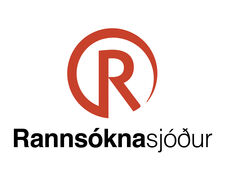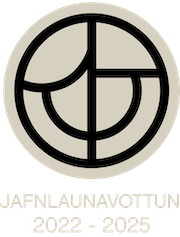Seigla íslenskra sjávarbyggða - verkefni lokið
Fréttatilkynning verkefnisstjóra
Nýlokið er rannsóknarverkefni þar sem félagslegar afleiðingar íslenskrar fiskveiðistjórnunar fyrir einstök byggðarlög eru greindar á ítarlegri hátt en áður hefur verið gert.
Í stjórnmálum og almennri samfélagsumræðu hefur mjög verið deilt um að hve miklu leyti neikvæða þróun margra sjávarbyggða megi rekja til breytinga í sjávarútvegi. Innleiðing framseljanlegra fiskveiðiheimilda (kvóta) seint á síðustu öld hafði mikil áhrif á byggðarlögin. Í verkefninu var þess freistað að leggja mat á seiglu íslenskra sjávarbyggða. Gerð var megindleg greining á landsvísu, þar sem margvísleg fyrirliggjandi gögn um sjávarútveginn og staðbundna þróun efnahagslífs og samfélags voru nýtt. Til viðbótar hinni tölfræðilegu greiningu voru gerðar tilviksathuganir þar sem eigindlegum gögnum var safnað. Tvö byggðarlög sem hafa þróast með ólíkum hætti voru rannsökuð til að fá dýpri skilning á þeim atriðum sem hafa stuðlað að meiri eða minni seiglu. Verulegur munur á seiglu kom í ljós í þessum tveimur sjávarbyggðum.
Greiningin leiðir í ljós tvenns konar takmarkanir seiglu-hugtaksins, eins og því hefur verið beitt í félagsvísindum. Oft hefur hugtakið leitt til þröngrar áherslu á byggðaþróun sem sprottin sé af innrænum forsendum, án þess að veitt sé athygli þeim ramma sem félags- og hagfræðileg formgerð setur. Umræðunni um hvort eða hvenær sé réttmætt, í samfélagslegum skilningi, að hætta tilraunum til að auka seiglu, hefur enn fremur verið ýtt til hliðar. Fjallað er fræðilega um þessa veikleika í ritgerðinni.
Doktorsverkefni þetta tekur á efni sem mikilvægt í íslensku samhengi, en leggur einnig til fræðilegrar umræðu á afar mikilvægum sviðum, þar sem fengist er við seiglu, svæðisbundna þróun og fiskveiðistjórnun. Lagt er til að hin stífa tvíhyggja sem gerir ráð fyrir ofanstýrðri nálgun annars vegar eða neðanstýrðri hinsvegar verði aflögð. Í staðinn verði unnið að mótun sveigjanlegri nálgunar, þar sem stjórnvöld leiða en heimafólk er einnig virkir gerendur.
English
A research project just finished looks into the social consequences of fisheries management in Iceland in the coastal communities in a more thorough way than has been previously done. A very prominent question in public and political debates has been to what extent the development in the fishing industry has played a part in the negative development of many fishing communities. The implementation of individual transferable quotas (ITQs) radically affected the communities. The assessment of the resilience of Icelandic fisheries communities to the structural changes in the fishing industry was the focal point of this research project.
A quantitative, countrywide analysis was undertaken, making use of diverse existing data, on fisheries on the one hand and on local socioeconomic developments on the other. This statistical analysis was supplemented with qualitative data, derived from case studies. Two communities that have followed different development trajectories were chosen for an in depth analysis of those factors that have contributed to a higher or lower degree of resilience. Substantial differences were found in the level of resilience of these two coastal villages.
The analysis reveals two theoretical limitations of the concept of resilience as it has been used in social science: the often narrow focus on endogenous strategies, which does not pay much attention to the broader political economy; and the avoidance of the inevitable discussion of a socially acceptable ‘endpoint' to resilience-building measures. These weaknesses are addressed in the theoretical discussion of the concept that is presented in the thesis.
This thesis thus addresses a crucial domestic issue, as well as contributing to a very important and rapidly evolving field of science that centers on resilience, regional development and fisheries management. This is combined with a call for considering flexible and inclusive ‘top-led, bottom-fed' approaches, breaking the rigid dichotomy of bottom-up and top-down strategies.
The results of this project were presented in four reviewed research papers and one viewpoint paper, all published already. All these papers are part of the doctoral thesis itself, which also contains an extended discussion of the theoretical foundations of the study and the implications of its findings.
Paper I Kokorsch, M., Karlsdóttir, A., & Benediktsson, K. (2015). Improving or overturning the ITQ system? Views of stakeholders in Icelandic fisheries. Maritime Studies, 14:15, 22p. doi: 10.1186/s40152-015-0033-x
Paper II Kokorsch, M. & Benediktsson, K. (2018). Prosper or perish? The development of Icelandic fishing villages after the privatisation of fishing rights. Maritime Studies,Online 22 May 2018, 15p. doi: 10.1007/s40152-018-0089-5
Paper III Kokorsch, M. (2017). The Tides they are a Changin': Resources, Regulation, and Resilience in an Icelandic Coastal Community. Journal of Rural and Community Development, 12(2/3), 59–73.
Paper IV Kokorsch, M. & Benediktsson, K. (2018). Where have all the People gone? The Limits of Resilience in Coastal Communities. Norsk Geografisk Tidsskrift – Norwegian Journal of Geography, 72(1), 97–114. doi: 10.1080/00291951.2018.1450289
Viewpoint Chambers, C., & Kokorsch, M. (2017). The Social Dimension in Icelandic Fisheries Governance. Coastal Management, 45(4), 330-337. doi: 10.1080/08920753.2017.1327346
PhD thesis Kokorsch, M. (2018). Mapping Resilience – Coastal Communities in Iceland. PhD dissertation in Geography, Faculty of Life and Environmental Sciences, University of Iceland.
Furthermore, the results were presented at several international and national conferences, workshops and seminars:
Guest lecture at a sociology seminar for MA-students Witzenhausen 06/2018. Mapping resilience – Coastal communities in Iceland.
MARE conference: Dealing with Maritime Mobilities Amsterdam 07/2017. A future for fishing? Intergenerational perspectives on social (im)mobilities and fishing identities.
7th Nordic Geographers Meeting: Geographies of inequalities Stockholm 06/2017. Convener of the session: Resilient or vulnerable? Towns in transition.
Understanding marine socio-ecological systems: including the human dimension in Integrated Ecosystem Assessments Brest 06/2016. Voices from the shore – Icelandic coastal communities in times of fisheries privatisation.
Invited guest speaker – Matthias Kokorsch Nuuk 05/2016. Learnings from a country (Iceland): fisheries regulation.
Nordic Ruralities: Crisis and Resilience Akureyri 05/2016. It is all about the ‘T' – Trajectories of Icelandic fishing villages in times of transferable.
Challenges in Q² methodologies to acquire and integrate data for the assessment of risk, vulnerability and resilience Bolzano 11/2015. A Vulnerability Indicator for Icelandic Fishing Communities.
MARE conference: People and the Sea Amsterdam 06/2015. From commons to commodity: Icelandic fisheries since the 1990s.
6th Nordic Geographers Meeting: Interpretations of Nature, Art and Politics Tallinn/Tartu 06/2015. The social aspects of fish.
Sókn sjávarbyggða. Hver er framtíðin? Koma konurnar? Patreksfjörður 09/2014. Fisheries management: What do the stakeholders think?
Heiti verkefnis: Seigla íslenskra sjávarbyggða/ Mapping Resilience – Coastal Communities in Iceland
Verkefnisstjóri: Karl Benediktsson, Háskóla Íslands
Tegund styrks: Verkefnisstyrkur
Styrktímabil: 2015-2017
Fjárhæð styrks: 11,567 millj. kr. alls
Tilvísunarnúmer Rannís: 152268


